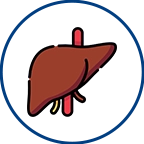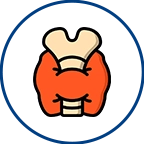Sleep Disorders Causes, Types, and Solutions

Sleep is an essential part of our lives, yet achieving restful sleep can be a nightly struggle for many. Sleep disorders, a group of conditions that disrupt standard sleep patterns, can significantly impact physical and mental well-being. This blog delves into sleep disorders, exploring their common types, causes, and potential solutions for a better night's sleep.
Home Sample Collection
Understanding Sleep Disorders:
Sleep disorders encompass a range of conditions that affect sleep quality, duration, and timing. They can lead to chronic fatigue, daytime sleepiness, impaired cognitive function, and various health issues. Some common types of sleep disorders include:
Insomnia: Insomnia is characterized by a struggle to fall, stay asleep, or both. Chronic insomnia can take a toll on overall health and quality of life.
Sleep Apnea: This disorder involves pauses in breathing during sleep, leading to frequent awakenings. The most prevalent kind, obstructive sleep apnea (OSA), can cause cardiovascular issues.
Narcolepsy: Narcolepsy causes excessive daytime sleepiness and sudden episodes of muscle weakness or paralysis (cataplexy) triggered by emotions.
Restless Legs Syndrome (RLS): RLS is characterized by unpleasant leg sensations, frequently accompanied by an overwhelming want to move the legs. It may cause sleep disturbances and insomnia.
Parasomnias: These include sleepwalking, night terrors, and REM sleep behaviour disorder, where individuals act out their dreams during REM sleep.
Causes and Risk Factors:
Sleep disorders can arise from various factors, including genetics, lifestyle, medical conditions, and psychological factors. Some common causes and risk factors include stress, obesity, certain medications, shift work, underlying health conditions like depression and anxiety, and substance abuse.
Solutions and Management:
Healthy Sleep Hygiene: To encourage better sleep, maintain a regular sleep pattern, make your bedroom comfy, and minimize screen time before bed.
Cognitive behavioural therapy for insomnia (CBT-I): This treatment provides valuable methods for enhancing sleep and addresses the psychological aspects contributing to sleep disturbances.
Medical Interventions: Treatment options for different disorders might range from stimulants for narcolepsy to continuous positive airway pressure (CPAP) therapy for sleep apnea.
Lifestyle Changes: Managing stress, maintaining a healthy diet, regular exercise, and avoiding caffeine or heavy meals close to bedtime can positively impact sleep.
Consultation with Professionals: Consult a physician or sleep expert if you think you may have a sleep condition. They can identify the problem and provide the best courses of action.
Conclusion
Sleep disorders can significantly impact overall health and quality of life. Fortunately, awareness, early detection, and appropriate management strategies can improve sleep quality and well-being. If you or someone you know struggles with sleep-related issues, seeking help is the first step toward achieving restful nights and more energized days. Remember, a good night's sleep is essential to a healthy and vibrant life.
Frequently Asked Questions
What are sleep disorders?
Sleep disorders disrupt standard sleep patterns, affecting the quality, duration, or timing of sleep. They can lead to fatigue, daytime sleepiness, and various health issues.
How common are sleep disorders?
Sleep disorders are relatively common. Millions worldwide struggle with insomnia, sleep apnea, narcolepsy, and more.
What causes sleep disorders?
Sleep disorders can be caused by various factors, including genetics, lifestyle choices, medical conditions, psychological factors, and environmental influences.
What are some common types of sleep disorders?
Insomnia (difficulty falling asleep), sleep apnea (breathing pauses while sleeping), narcolepsy (extreme daytime drowsiness), restless legs syndrome (uncomfortable leg sensations), and parasomnias (sleepwalking, night terrors, etc.) are common sleep disorders.
How do sleep disorders affect health?
Sleep disorders can lead to chronic fatigue, impaired cognitive function, mood disturbances, and an increased risk of other health issues like cardiovascular problems and diabetes.
Can lifestyle factors contribute to sleep disorders?
Yes, lifestyle factors such as irregular sleep schedules, excessive caffeine or alcohol consumption, lack of physical activity, and stress can contribute to developing sleep disorders.
What is the recommended treatment for sleep disorders?
Treatment options vary depending on the type of sleep disorder. They can include lifestyle changes, cognitive behavioural therapy for insomnia (CBT-I), medical interventions, and consultation with healthcare professionals or sleep specialists.
How can I improve my sleep hygiene?
A regular sleep schedule, a relaxing sleeping environment, minimizing screen time before bed, and avoiding heavy meals or caffeine close to bedtime are all examples of good sleep hygiene.
When should I seek help for a sleep disorder?
If you consistently experience difficulty falling asleep, staying asleep, or having excessive daytime sleepiness, it's advisable to consult a healthcare provider or sleep specialist.
Can sleep disorders be cured?
Not all sleep disorders can be fixed, while some can be effectively controlled and their symptoms decreased. The purpose of therapy is to enhance general health and sleep quality.
Are there any self-help strategies for managing sleep disorders?
Yes, adopting healthy sleep habits, managing stress, practising relaxation techniques, and maintaining a balanced lifestyle can all contribute to better sleep.
Is it necessary to undergo a sleep study for diagnosis?
Depending on the suspected sleep disorder, a sleep study (polysomnography) might be recommended to monitor your sleep patterns and gather diagnostic information.
Can children have sleep disorders?
Yes, sleep disorders can affect people of all ages, including children. Pediatric sleep disorders can have unique characteristics and require specialized care.
Book Appointment
Our Locations Near You in Hyderabad
3KM from Banjara Hills
1.9KM from Yusufguda
3KM from Madhura Nagar
5KM from Shaikpet




